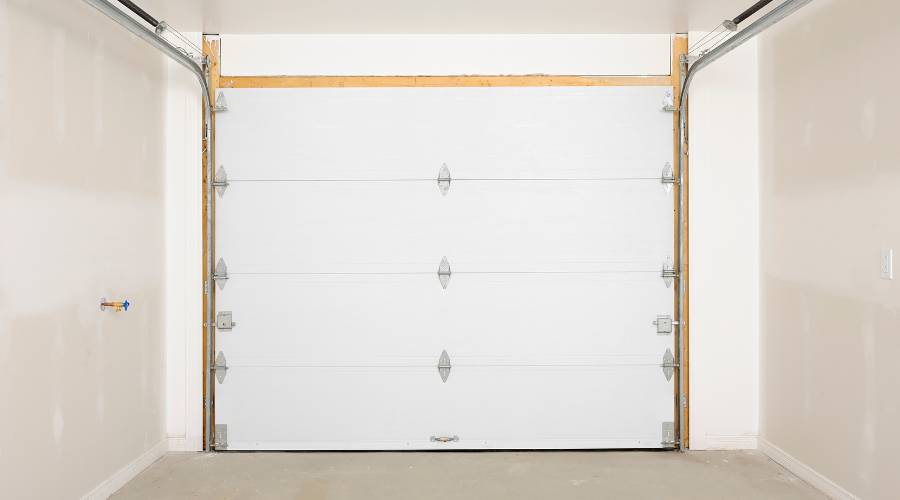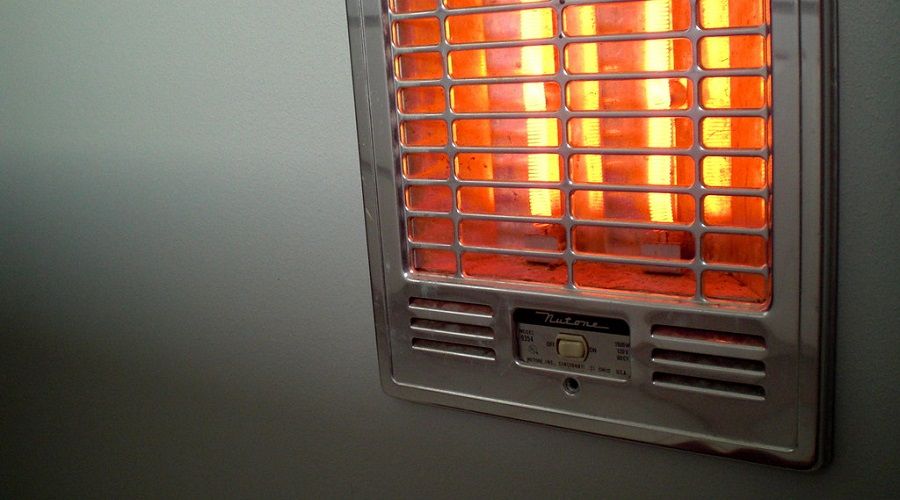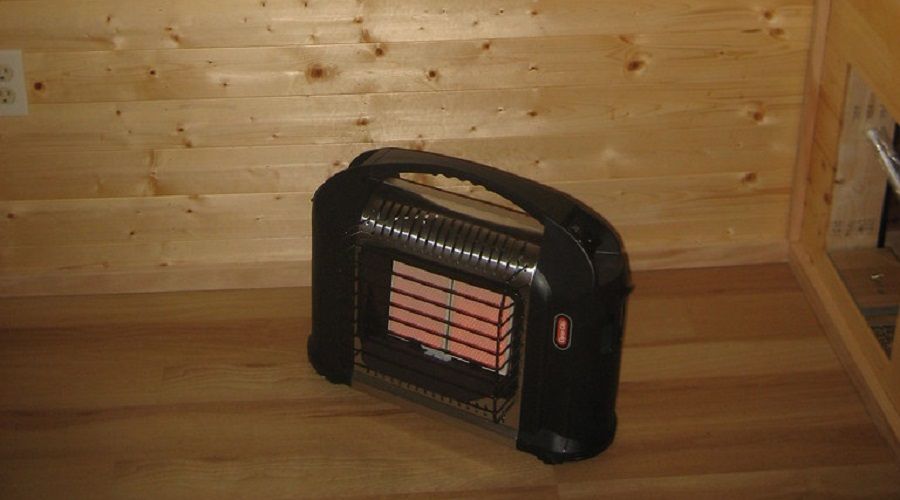Although your house is equipped to stay nice and toasty in the winter, your uninsulated garage might need a little more help.
The cold season makes it hard to work in your garage space for car repairs and workshop projects. Instead of making do with freezing fingers and an unused workshop, you can make yourself comfortable with a garage heater to keep your garage warm and toasty.
However, with the way that they’re built, one question quickly comes to mind — are garage heaters safe?
Safety of a Garage Heater
Image Credit: timlewisnm via Creative Commons
Garages aren’t treated as living spaces and aren’t usually built with proper features to regulate temperature and ventilate the air, especially for winter.
To combat this, many have invested in either heavy-duty or a compact design garage heater. While they’re incredibly useful, the biggest safety concern is the heat source.
Many heaters are powered by gas and fire for better efficiency, but that can come with some risks. Depending on the size, if these are in a poorly vented room, they can build up carbon monoxide levels to dangerous levels. You also face the possibility of flammable debris falling into the heater unit and starting a fire.
While these are valid concerns, they can be (and have been!) worked around with proper venting and installation. Homes across the country safely benefit from garage heaters, and you could too!
Why You Should Heat Your Garage
Image Credit: wheezinggirl via Creative Commons
A garage heater is a fantastic investment that can greatly improve how you enjoy your home. Here are our favorite reasons why you should heat your entire garage!
Improve Home Temperature
Since garages are usually unequipped with heating, it’s a vulnerable spot in your house. If your garage walls aren’t insulated, cold air can seep in and waste tons of energy.
A garage heater helps better regulate your home’s temperature and preserve heat. It’s also beneficial for home expansion since, with heating installed, you can easily convert it into a bonus room or living area.
Protect Garage Equipment
A garage often serves as extra storage for anything you’re not using but can’t throw away. It means your garage could be housing valuable items, useful tools, and expensive equipment.
With a garage heater, you can protect these valuables from freezing damage. You’ll also be avoiding spending your hard-earned money on repairing and replacing them.
Comfortable Winter Workshop
If you use your garage as a workshop and don’t want to stop your craft in the winter, a garage heater will help!
With a heater, you can stay comfortable and warm while completing your tasks. Even without a workshop setup, garage heaters are convenient for working on your car and fixing some banged-up home items.
Garage Heater Buying Guide
Image Credit: Orin Zebest via Creative Commons
A garage heater that works for one person might not be the best for you. These are some of the key factors you should consider when choosing a garage heater.
Type of Heater
Three of the most common garage heaters are forced air, infrared, and portable heaters, each with advantages and disadvantages.
- A forced-air heater is built with a fan and can be portable or mounted. This type of heater heats quickly but can be very loud and dangerous if flammable debris gets in.
- Infrared heaters, also known as radiant heaters, warm up their surface to emit heat. They’re energy-efficient and silent, but their heat output can work slowly in larger spaces.
- Portable heaters are often the easiest and most convenient to use. Portable space heaters are good for maintaining comfortable temperatures around the immediate garage floor space but can be underpowered, especially during extreme winters.
Heat Source
- A forced-air heater is built with a fan and can be portable or mounted. This type of heater heats quickly but can be very loud and dangerous if flammable debris gets in.
- Infrared heaters, also known as radiant heaters, warm up their surface to emit heat. They’re energy-efficient and silent, but their heat output can work slowly in larger spaces.
- Portable heaters are often the easiest and most convenient to use. Portable space heaters are good for maintaining comfortable temperatures around the immediate garage floor space but can be underpowered, especially during extreme winters.
Installation
Installing and mounting your heater will depend on your garage size, layout, type, and size of the heater. If you don’t want to hire a professional, you can do it yourself, keeping the safety features in mind!
Here’s one example of how to install a garage heater: How to install a garage/shop heater. (Mounting, Venting, Wiring).
Venting
Venting your heater is important to promote air transfer and avoid increasing carbon monoxide levels. For portable units, simply cracking open your garage door or window can help with ventilation. For permanent heater fixtures, proper ventilation needs to be done while it’s being installed.
Here’s a video you can watch to see how to vent a garage heater: Homeowners Garage Heater Install.
Apart from adequate ventilation, we also recommend getting a carbon monoxide detector and alarm to prevent carbon monoxide poisoning.
In Summary
Garages aren’t usually connected to central heating systems, nor are they built with thick insulation, making it easy for the cold to creep into your space. Fortunately, garage heaters are built to warm up your cold garage!
Garage heaters are incredibly accessible and, though they come with some safety concerns, they can all be quickly and easily worked around through proper installation, venting, and usage.
If you use these things properly, there’s nothing to fear with having a heater in your garage!




